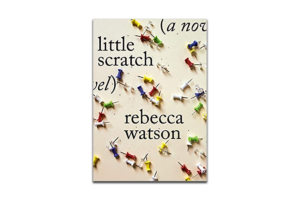Felix is acting weird. His girlfriend, the unnamed narrator of Fake Accounts, suspects that he might be cheating on her. When she snoops through his phone, she instead discovers that he runs a popular conspiracy theory Instagram account. 9/11 was an inside job, toxic chemtrails, Zionist world domination, cell phones emitting evil radiation – he posts it all.
So begins Lauren Oyler’s debut novel, a wry satire set in the early days of Trump’s presidency. ‘Consensus was the world was ending’, the narrator asserts in the opening line. Fortunately, this has little impact on her lifestyle of scrolling through Twitter, attending yoga classes that she feels are vaguely culturally appropriative, and hating her trendy but vacuous blogging job. Discovering that her social media-hating boyfriend is spreading conspiracy theories online isn’t particularly upsetting. She’s been looking for an excuse to break up with him for a while, anyway.
Fake Accounts is Oyler’s fiction debut. She’s usually known as a lacerating book critic – the kind that makes authors say ‘oh FUCK’ when they find out she’s reading their work. She has much in common with the equally snarky narrator of her novel. They both have lived in New York and Berlin. They’re sceptical towards mainstream feminism, although (or perhaps because) they both write about women’s issues. Oyler was the editor of Vice’s now-defunct women’s section and the narrator churns out shareable feminist content inspired by things she sees on Twitter. Speaking of Twitter, Oyler and her narrator even have the same display picture, which she describes in the book: ‘my hair completely covers my eyes and nose, representing me as a poutily sexy girl without a face.’
The Twitter easter egg is part of Fake Accounts’ commentary on the world of meticulously and misleadingly crafted social media profiles. Oyler’s narrator constantly reinvents her online and real personas, going on dates where she tries on different fake personalities based on the signs of the zodiac. She calls it an ‘experiment’, although it’s not clear whether it’s herself or the dates that she’s experimenting on. She becomes an acupuncturist, an entrepreneur, a cosmopolitan nomad, a PhD Gender Studies dropout. Each new personality is discarded with the ease of swiping left; the men she dates are equally easily tossed aside. On the dating site where she meets them, she describes herself as being ‘difficult but worth it.’
Despite the novel’s promising opening scene, there’s not a whole lot of plot. For most of the book, the protagonist scrolls through her phone, lies to men, and fails to fill out her German visa application. The novel’s longest chapter is titled ‘Middle: (Nothing Happens).’ It’s the literary equivalent of Oyler shrugging her shoulders and saying, ‘I warned you.’ Forty of those pages are written in short, unrelated paragraphs that parody fragmented literary fiction by writers like Jenny Offill, whom the narrator hates. ‘Why would I want to make my book like Twitter? If I wanted a book that resembled Twitter, I wouldn’t write a book; I would just spend even more time on Twitter,’ she writes.
After the reputation Oyler has built critiquing beloved millennial writers like Sally Rooney and Jia Tolentino, Fake Accounts reads as her manifesto for what the so-called ‘millennial novel’ should look like. Darkly funny, deliciously meta, and totally lacking in character development are her apparent conclusions. This makes it a rewarding read, but not an easy one, as it’s so hard to care about her narcissistic characters. Just like its protagonist, Fake Accounts is best summed up as ‘difficult but worth it.’
Fake Accounts is published by 4th Estate.
If you purchase books linked on Safe and Sound, we may earn a commission from Bookshop.org, whose fees support independent bookshops.


